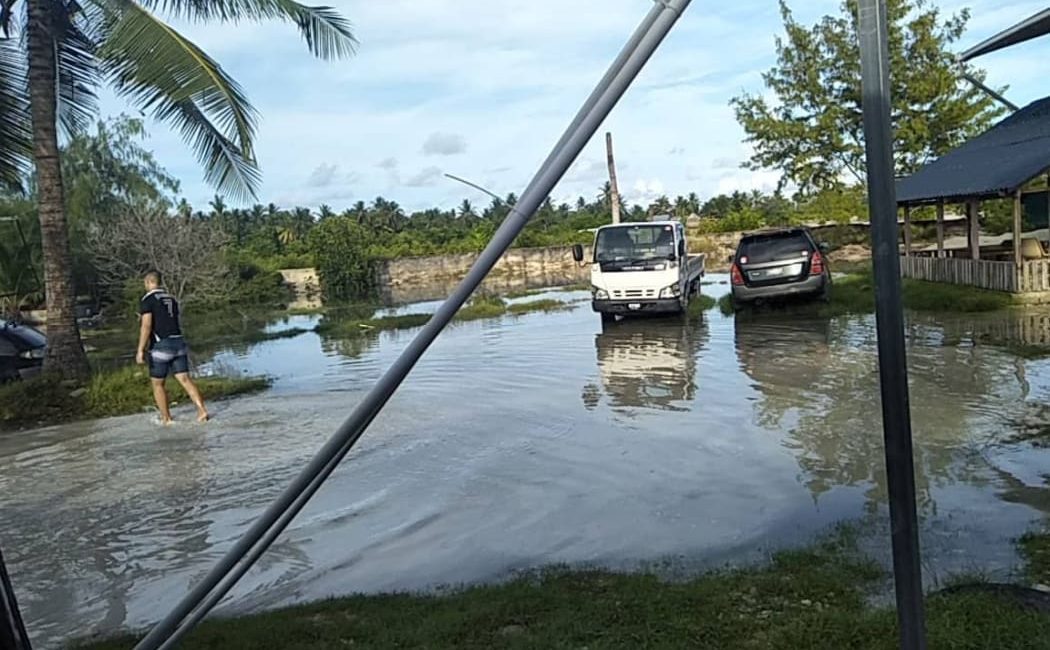
Tarawa street scene with king tide, Friday 30 August 2019. Photo: Pelenise Alofa, KiriCAN
Communities in many of Kiribati’s most remote areas will receive much-needed support for climate resilience as part of a new US$20 million climate change adaptation project.
The World Bank has approved the Kiribati Outer Islands Resilience and Adaptation Project to work with 20 island councils across Kiribati as well as the three urban councils on Tarawa.
The project is investing in community-level climate resilience that will directly support an estimated 14,000 people – equivalent to 12 percent of the population.
The measures include improving access to fresh water, drainage improvements, coastal protection, upgrades to public buildings and critical facilities, as well as maintenance equipment and climate-resilient solutions for flooding.
“There are arguably few places in greater need of support and protection for the impacts of climate change than the communities living in Kiribati’s outer islands,” said Lasse Melgaard, World Bank Resident Representative for the South Pacific.
“Yet we are acutely aware that the impacts of climate change can vary significantly across communities and islands. This new project will see communities working closely with the national government and the World Bank to ensure those communities get the support they are most urgently seeking.”
Vice President and Minister of Finance and Economic Development, Teuea Toatu said the needs of the outer island communities are significant.
“We are pleased to be working with all 20 Island Councils – supported by the World Bank – to deliver such critical infrastructure and basic services that will support communities’ resilience.”
The project builds on decades of World Bank support to Kiribati for climate adaptation and disaster resilience, including the Kiribati Adaptation Program, which supported coastal protection works, access to fresh water supply, and a grant scheme for community infrastructure.
Source: RNZ





